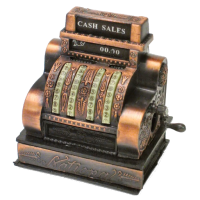When running a business site online, you may think that your product page, landing page, or even all of the neat Flash animations you have are your greatest asset. However, you would be wrong. The greatest thing you can offer your visitors and customers is trust. When you sit back and consider the nature of the internet, it is very easy to see why this would be the case. Online, anyone can pretend to be anything they want. With a computer and internet access, criminals can portray themselves as legitimate businessmen and women, conning people out of thousands of dollars, ruining credit, and destroying lives.

As a result, most consumers are at least savy enough to recognize this fact. They are not willing to give personal and financial information to institutions and sites they do not trust. Because of this, your business needs to ensure that trust is your number one priority when trying to convince visitors to conduct financial transactions with you. But how can you do this?
SSL Certificate
First and foremost, you need to make sure your SSL certificate is up to date. SSL (short for secure socket layer) certificates essentially denote websites that are up to date with the latest in security procedures when it comes to encrypting sensitive data. If you, or your site’s host, are not up to date, a warning may come up when a customer begins the checkout process. This can cause customers to immediately abandon their transaction, as well as not return to your site. Although your site might still be secure, if your certificate is out of date, it will not matter to the customer. For this reasons, it is a good idea to conduct a few test transactions a week yourself, as well as stay in touch with your hosting company.
Secure Checkout
Also, consider having your checkout procedure verified by one of the many trusted verification companies out there. By doing so, you will be issued a badge icon you can place on your web site that tells customers that you are not merely some fly by night operation, and that 3rd party security professionals have tested and verified your security system. You may also want to include words like “secure checkout” on your checkout links.
Privacy Policy
Finally, have a readily available copy of your privacy policy on each page. Although, in reality, most internet users forgo any fine print when trying to make a transaction, it is important to have a privacy policy in order to protect yourself, as well as the customer. By writing a privacy policy that stands up for the rights of your customers, you are not only doing them a service, but you are doing yourself and your business a service. As mentioned, if a customer feels like they can trust you and that you will protect their information, they will be more likely to do business with you. If the customer feels threatened in any way, they will likely head for the hills, never to return.
